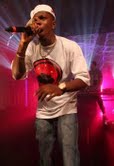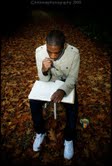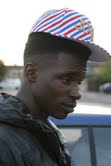If you ask the average American to describe British culture in a few words, you’d probably get something like this: bad teeth, tea, cricket, crumpets, rain, and the Royal family. The last thing on a lot of people’s minds is a flourishing hip-hop scene. Admittedly, you only have to listen to English soccer star John Barnes’ rap from England’s 1990 World Cup song to get a feel of how little rhythm the entire country seemed to possess at the time. You’d cringe so hard that even a heavy dose of Botox won’t get rid of the creases. But of course, this is all in the past.
In the last ten years, the United Kingdom has been quietly cultivating its own hip-hop scene. Recently, it has exploded into the mainstream, with six number one singles (on the U.K. singles chart) for a combined ten weeks in the last year. Some music has made its way over to the United States, such as Taio Cruz’s hit “Break Your Heart” that rocketed straight from fifty-third to first on the Billboard 100 in just one week in March of last year.
South London-based Tinie Tempah has also found recent success in the U.S., playing at Coachella and is currently placed at number 15 on the Billboard Hot 100 with his single “Written in the Stars.”
Tinie Tempah is only one (and relatively new) of the U.K.’s hip-hop artists. Artists such as Dizzee Rascal, Kano, Lethal Bizzle and Wiley have been making music for years.
More often than not, you will hear the word “Grime” when referring to the U.K.’s hip-hop industry. Grime is characterized by choppy beats and a minimalist approach. The timing is often awkward, making it hard to dance to. The vocals are usually delivered in a very abrupt, almost staccato style and use a very different vernacular from their U.S. counterparts.
“I’m into more alternative hip-hop, but I’ve never heard any U.K. stuff” said second-year Environmental Science major Jeff Svoboda.
Then, Jeff and I listened to a selection of artists to get a feel for the music.
“I like it; it’s totally different, [and] pretty high energy. I had a hard time telling what he was saying though; their voices all seem a lot higher and sharper than U.S. rappers,” he said afterwards.
Of course, the accent is another major difference, and one which may take a bit of getting used to.
“The beats themselves are all a lot more electronic; it’s a lot less laid back than what I’m used to,” continued Svoboda. “It would make quite good party music.”
Grime really came to the public’s attention in the U.K. when Dizzee Rascal was awarded the 2003 Mercury Prize (the most coveted award in U.K. music) for his album Boy In Da Corner. He was the first rapper to ever win the award. Boy In Da Corner told the story of growing up in one of East London’s most notorious areas and dealt with issues such as violence, teenage pregnancy, love and paranoia.
In recent releases, as Dizzee Rascal’s popularity has increased, his lyrics and style have changed. His latest album Tongue ‘N Cheek took a conscious departure from his Grime roots, favoring a pop sound and a lyrical content that focused more on the women and wealth being a successful artist brings.
But it’s not just Dizzee Rascal who has seen his style change to cater to a more mainstream audience. You only need to look for “Lord of the Mic” on YouTube to see Grime acts like Wiley, Kano and Lethal Bizzle rap battling each other in the early 2000’s in some of London’s most notorious areas. They have come from the underground and emerged as legitimate musical forces in the U.K. But there are those who stick to the Grime stereotype such as Tempa T, Skepta and Ghetts. Some would argue that this apparent commercialization of the genre has all but taken the artistic credit away from U.K. hip-hop; some see it as a genre maturing with age and success.
But not all U.K. hip-hop stems from Grime; Dan Le Sac vs. Scrubious Pip’s album Angles has songs that are so cleverly crafted it will leave your brain numb, whereas Plan B’s album The Defamation of Strickland Banks (which is actually more of a soul record) was one of the most forward-thinking albums of last year.
Parallels can certainly be drawn between the evolution of Grime and that of hip-hop stateside. When a genre of music suddenly becomes popular, the chances are that it is becoming more commercial (many would argue the other way around). This has been seen in the U.S. with artists like Nas (Hip Hop is Dead) and Jay-Z (D.O.A. [Death of Autotune]) publicly denouncing the trend of commercial, radio-friendly hip-hop.
So if you’re looking for something a little different to listen to this summer, why not give U.K. hip-hop a try? At first it may seem too harsh and fast to be enjoyed, but give it a chance and you can easily find yourself hooked on the distinct sound that comes from both the vocals and the beats which make it so unique. You may also want to keep urbandictionary.com close at hand to help translate all the slang (i.e. rudeboy, blud, wasteman… This is not an exhaustive list—listen to P- Money’s “Slang Like Dis” for a quick overview). Check out the playlist below to find where to start.
Listen to the TBL UK PlayList on groove Shark HERE.
freestyles from U.K. and U.S. hip-hop acts courtesy of BBC Radio 1.















Comments are closed.